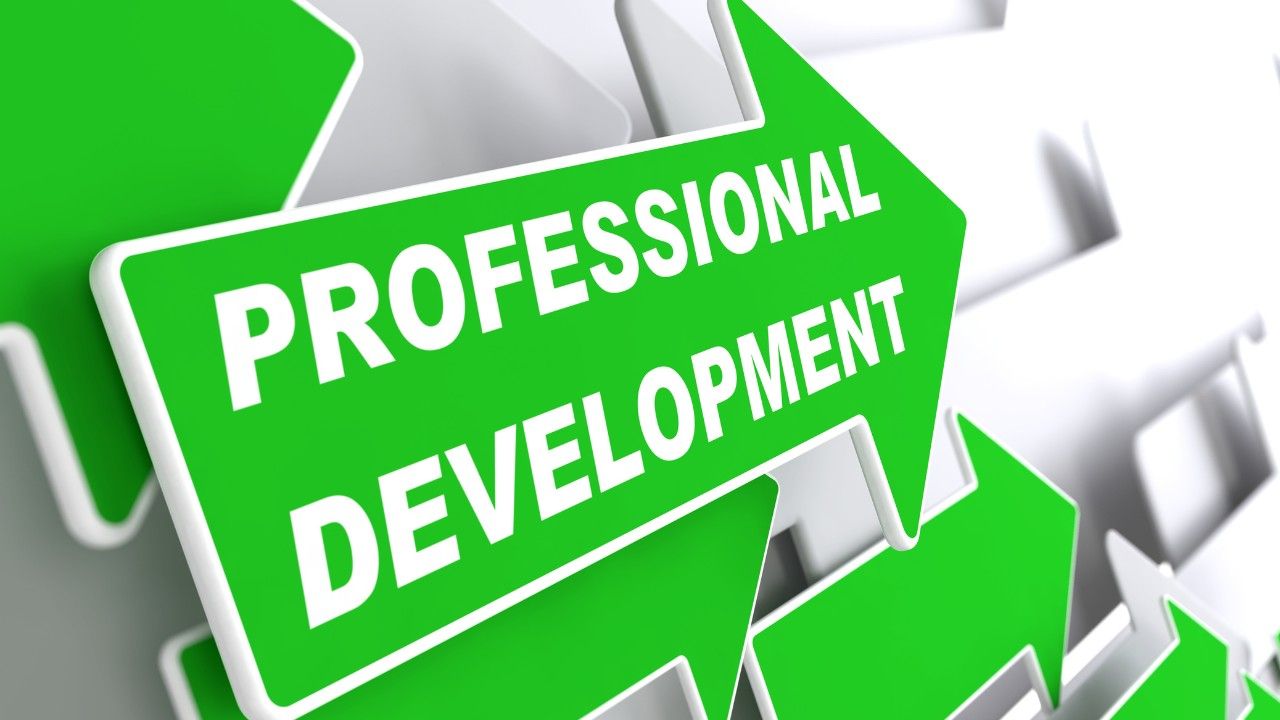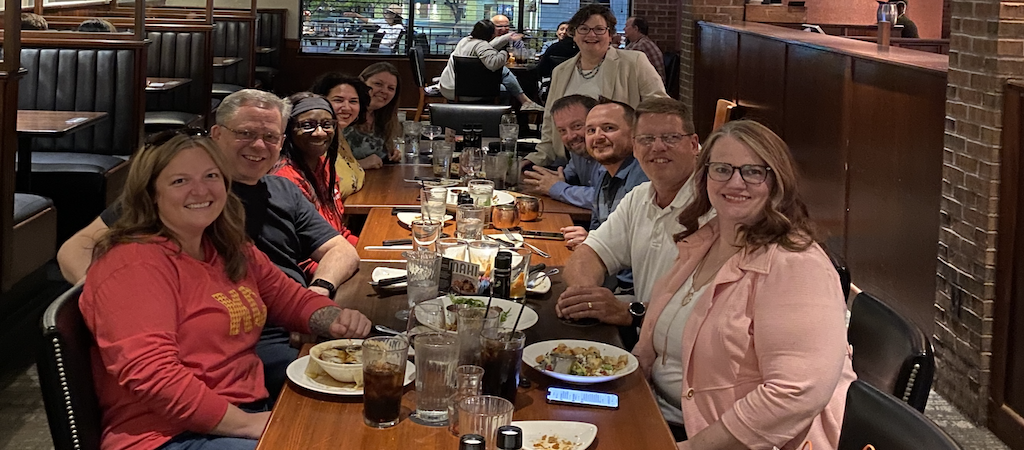10 Professional Development Tips for Employees
Oct 01, 2023
When you think of professional development, what’s the first thing that comes to mind?
Maybe you picture a conference, somewhere that you’ll attend for some form of continuing education, like an online course. Others might think of taking a required certification class.
Easy peasy lemon squeezy, right?
Yeah, no. This is actually where a lot of people go wrong.
Here’s the thing, people. When you’re only focusing on these basic strategies for professional development, you’re limiting yourself, losing opportunities for both continuous learning and career advancement.
There are so many forms of professional development for employees that go unseen and underutilized – ones that can provide you with serious progress in your career trajectory.
So let’s change it up, shall we?
In this post, I’m covering 10 professional development tips for employees. We’ll talk about diverse learning opportunities, underrated development approaches, and ideas to help you knock your professional development out of the park.
10 Professional Development Tips for Your Career Path
I cannot possibly oversell the importance of ongoing professional development to help you achieve your career goals. These tips are going to maximize your growth potential:
1. Take responsibility for your own professional development
Perhaps the most important concept to learn in professional development – it’s your responsibility.
So many professionals will assume any kind of skill development is their employer’s responsibility; if their company isn’t paying, they’re not interested.
These employees won’t get new certifications or stay up-to-date on their skill sets unless specifically mandated, and paid, to do so.
This is a really, really good way to be sure your career gets stuck in the mud.
So embrace the mindset that professional development is 100% on you. It might requires more work upfront and some creativity on your part, but the benefits will outweigh the effort every time.
2. Maximize what your current company offers you
Just because your professional development is your responsibility doesn’t mean you should ignore available resources from your employer. That would be nuts.
Your company almost certainly offers access to some form of professional development. Some opportunities to watch for include:
- tuition benefits
- internal training
- training allowances
- conferences
If you’re not sure what options are available, ask your boss or HR.
Then I encourage you to plan how you’ll use any and all professional development opportunities your company provides.
In other words, when you see the chance – jump.
Looking for something beyond what’s offered? Ask! Propose the professional development opportunity for yourself, or on a wider scope, open company-wide.
One of my most ingenious examples of getting company support for professional development happened several years ago. I was set to start a job as a Scrum Master in a Data Analytic program for an EdTech firm and was trying to choose the start date.
I had already registered for a 2-day Big Data conference in my town, so originally I proposed starting my job the following Monday.
Only…the conference was directly related to my job. So we came up with a new plan for my first day of the conference to be my first day of employment. BOOM - now I’m at a conference AND I’m getting paid.
If you don’t ask, the answer is always no. So give it a go.
3. Learn through peer communities
One of the most efficient methods of learning is from one another. This is why I always recommend seeking professional development through peer communities.
Inside your company, you may find that there are Communities of Practice or Employee Resource Groups that align to an area you want to develop. If your company has options like that, pick one and join.
Outside your company, you can seek this through meet-ups, user groups, associations, and other groups within your field.
These communities offer shared learning experiences, networking, and future growth opportunities. Some associations even have certification opportunities available, and we all know how much people love new certifications when making hiring and promotion decisions!
The best part of peer communities, though? The opportunity to find colleagues - some of whom might become friends - to do your work-life with.
Case in point: I helped start the Kansas City Chapter of the IIBA back in 2007 and served for a couple of years on the board of directors.
When I moved on from BA work, I stopped actively working with the organization, but I kept in touch with people and met new IIBA members over the years. Bonus points? I have served as speaker and emcee for their annual BA Development Days for 2 years now!
4. Seek a professional mentor
One of my favorite tools I’ve used to develop my career is the help of mentors.
I’ve had several mentors over the years, both in the same company (and even the same department) and outside the company.
Building a relationship with someone who is further along the path of where you want to be and who enjoys helping others grow is a win-win for everyone.
While your career path will likely look different from theirs, it’s always fascinating to learn how someone got where they are.
Also - don’t discount working with a mentor who’s a good bit younger than you. They might not be able to advise you on how to chart a career path, but they often can provide perspective on how a different generation sees things, or help you learn new skills.

5. Participate in live and virtual events
A smart way to maximize your continuous learning opportunities is to participate in both live and virtual events.
If you can’t commit to an intensive, multi-day conference, opt for simple professional development days, or lunch-and-learns.
I also suggest you mix up in-person and virtual events. Some people are tempted to focus only on virtual events because they love the idea of professional development in their pajama pants, but there is something truly special about seeing people in the flesh - whether in your hometown or elsewhere.
I like to go to at least 2 in-person events and at least 2 virtual events every year - and often find myself serving as a speaker too. (The pic above is from a speaker dinner for the KCIIBA BA Development Days last year. I was the emcee and I am pretty sure I'm better than both Ken Jennings and Mayim Bialik.)
6. Trust in self-study
Self-study is an extremely underrated mode of professional development.
Self-study allows you to learn at your own pace. Take things slowly, or fast-track your learning based on your schedule and advancement timeline!
Depending on your budget, there are self-study options ranging from thousands of dollars to absolutely free – the choice is yours.
Some examples of self-study development:
- Recommended reading in your field
- Participating in courses through Coursera, Khan Academy, etc.
- Webinars and workshops
- Blogs, articles, journals, and podcasts in your field
- YouTube, baby. YouTube!

7. Practice actually leading!
Almost everyone I talk to about career growth and professional development has their sights set on some kind of leadership role.
So what better way to achieve these goals than to practice actually leading?
Finding occasions where you can slip into a leadership role will teach you more than anything else. It doesn’t have to be a big promotion - heck, you can just offer to plan the quarterly team-building activity or sign up as a committee chair for your local professional society.
By jumping into leading, you’ll also be forced to dig deeper into your domain to best be able to teach and present your craft.
8. Diversify your skill building
There are tons of ways to build skills that go far beyond a lecture or a textbook.
Many of these forms are practical. For example, raising your hand at work to take on a project that’s a little weird, or off from your usual focus.
Another less-considered mode of skill building is actually through a side hustle.
I often see this with professionals working in product management who hope to find more marketing expertise so they can grow into product management leadership roles or even start their own tech company.
Starting something like a consulting practice as a side hustle provides an opportunity to manage sales, operations, marketing, and more - skills that can be applied to the day job.
9. Don’t narrow your possibilities for learning
If you take one thing away from my professional development tips, I hope you pledge to never limit yourself.
Focusing too closely on your current industry, role, or functional area could prevent you from learning valuable skills – ones that serve you as you move up the ranks. If you aspire to be an executive, it’s even more important. A broad understanding of business is almost always needed to land in the boardroom.
Avoid a narrow approach to your development and be on the hunt for new and less conventional ways to learn and grow.
10. Consider career coaching
If you’re struggling to use professional development effectively to meet your career goals, a career coach is your next step.
A coach will help you start from scratch, co-creating professional goals and milestones, with practical steps to help you achieve them
This can be particularly helpful when trying to set a long-term plan, as many struggle to see how the little pieces come together in the end.
If you think working with a career coach might be right for you, book a call to get started!
Final Thoughts from a No BS Career Coach on Professional Development for Employees
I hope you found these tips useful in cultivating a development path that suits your goals and learning preferences.
My final advice to you as you're working on professional development is to remember who you serve – yourself.
Your current company may offer you professional development, and you should absolutely take advantage of what they put in front of you. Still, these opportunities will almost always be created to serve the company’s agenda, not yours.
Remember that you have career aspirations and an agenda of your own; tie your professional development to your own interests as much as possible.
This is how you best serve yourself and your ambitions.



